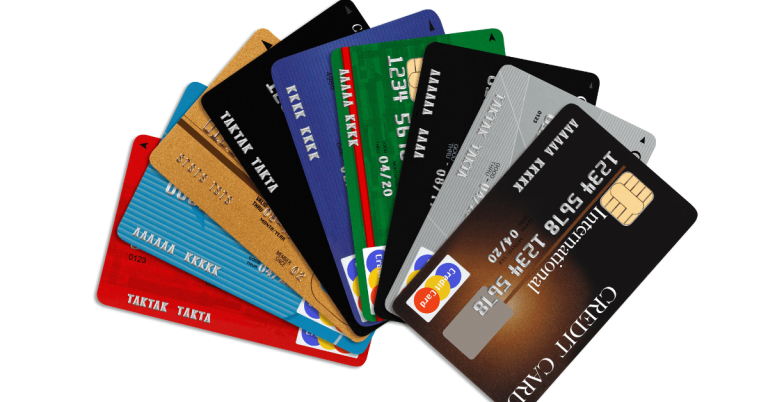Saving money doesn’t have to mean sacrificing the things you enjoy.
Small adjustments in daily habits can make a significant impact on your finances.
These strategies will help you cut costs without making drastic changes.
The Psychology of Spending
Understanding why you spend can help you save without feeling restricted. Small behavioral shifts can prevent unnecessary expenses.
- Avoid impulse purchases by implementing a 24-hour waiting rule.
- Differentiate between wants and needs to prioritize essential expenses.
- Set spending limits to stay in control of daily purchases.
How to Track and Manage Expenses
Keeping track of expenses helps identify areas where you can save effortlessly. Small spending leaks often add up over time.
- Use budgeting apps to monitor expenses automatically.
- Review monthly bank statements to spot unnecessary charges.
- Set up alerts for large transactions to stay aware of spending patterns.
Understanding Hidden Costs
Many expenses go unnoticed but can significantly impact your finances. Reducing these costs helps you save without cutting back on essentials.
- Cancel subscriptions you don’t regularly use.
- Avoid bank fees by choosing accounts with no monthly charges.
- Compare service providers for better rates on the internet and insurance.
Smart Ways to Save Money Without Changing Your Lifestyle
Saving money doesn’t have to mean giving up the things you enjoy.
Small, strategic adjustments in your spending habits can lead to significant savings without requiring major lifestyle changes.
Below are practical ways to cut costs effortlessly while maintaining the same quality of life.
Optimize Everyday Expenses
Maximizing benefits from daily expenses can help you save without extra effort. A few smart choices can reduce costs over time.
- Use cashback and rewards credit cards for routine purchases.
- Sign up for loyalty programs to earn discounts and perks.
- Set up auto-pay to avoid late fees on recurring bills.
Cut Unnecessary Fees
Fees can drain money from your account without you realizing it. Eliminating them helps keep more money in your pocket.
- Avoid ATM withdrawal fees by using in-network banks.
- Negotiate or switch to lower-cost streaming and mobile plans.
- Monitor bank statements for hidden charges and dispute them.
Smart Grocery Shopping
Making strategic grocery choices can lead to significant savings. A little planning prevents overspending at the store.
- Use coupons and cashback apps for discounts.
- Choose store-brand products over name brands.
- Plan meals to avoid last-minute, expensive grocery runs.
Reduce Utility Costs Without Sacrificing Comfort
Cutting utility bills doesn’t mean giving up comfort. Small changes can lower costs without affecting your lifestyle.
- Install energy-efficient LED bulbs to reduce electricity use.
- Adjust thermostat settings for better energy efficiency.
- Unplug electronics when they’re not in use to avoid phantom power drain.
Take Advantage of Free or Low-Cost Entertainment
Entertainment costs can add up, but many free options provide just as much fun. Choosing alternatives can save hundreds annually.
- Borrow books and movies from the library instead of buying them.
- Attend free local events and community activities.
- Use ad-supported streaming services instead of premium subscriptions.
Make the Most of Work Benefits
Your job may offer financial perks that you’re not using. Taking advantage of these benefits can effortlessly boost savings.
- Maximize employer-sponsored retirement contributions.
- Use available discounts on insurance or wellness programs.
- Take advantage of commuter benefits to lower transportation costs.
Shop Smarter
Being mindful when shopping helps you spend less without feeling deprived. A few tricks can keep costs down.
- Wait for sales instead of buying at full price.
- Use browser extensions to find discount codes automatically.
- Buy in bulk for frequently used household items.
Automate Savings
Making savings automatic prevents the temptation to spend extra money. Small contributions add up over time.
- Set up recurring transfers to your savings account.
- Use roundup savings apps to save spare change from purchases.
- Direct tax refunds or bonuses into savings instead of spending them.
Use Refillables and Reusables
Switching to reusable products cuts down on recurring costs. Over time, these small swaps save a lot.
- Carry a refillable water bottle instead of buying bottled water.
- Use reusable grocery bags to avoid extra charges at stores.
- Opt for rechargeable batteries instead of single-use ones.
Save on Transportation Costs
Transportation expenses can be reduced without giving up convenience. A few strategic adjustments can lead to long-term savings.
- Carpool with coworkers or use rideshare discounts.
- Take public transportation when feasible.
- Use apps to find the lowest gas prices in your area.
Reduce Impulse Spending
Controlling impulse spending prevents unnecessary purchases. Simple strategies help you avoid buying things you don’t need.
- Remove stored credit card details on shopping sites.
- Create a wish list and wait 48 hours before purchasing.
- Stick to a shopping list to prevent unplanned purchases.
Utilize Community and Sharing Resources
Many items don’t need to be bought brand new. Borrowing and sharing can significantly cut costs.
- Borrow tools, books, or appliances instead of buying.
- Join local “Buy Nothing” groups to get free household items.
- Swap clothes, furniture, or services with friends and neighbors.
Cut Back on Dining Out Without Giving It Up
Dining out doesn’t have to be expensive. Making small changes can reduce costs while still enjoying meals outside.
- Use restaurant loyalty programs for discounts and free items.
- Order takeout instead of dining in to save on service fees.
- Share meals or choose smaller portions to lower costs.
Plan for Seasonal Discounts
Buying at the right time saves a lot of money. Many products go on sale at predictable times.
- Buy winter clothes in spring and summer items in fall.
- Take advantage of Black Friday and holiday sales.
- Purchase gifts throughout the year instead of last-minute shopping.
Optimize Your Subscriptions and Memberships
Subscription costs can pile up quickly. Managing them wisely keeps your budget in check.
- Rotate streaming services instead of paying for multiple at once.
- Cancel gym memberships and use free workout apps.
- Share group plans for services like music and cloud storage.
Ways to Increase Savings Without Extra Effort
Maximizing financial tools ensures that your money grows without additional effort.
- Open a high-interest savings account for better returns.
- Take full advantage of employer retirement contribution matches.
- Invest in passive income streams like dividend stocks or rental properties.
How to Make Smart Financial Decisions
Being intentional with financial choices leads to better money management. Small shifts make a big difference.
- Compare prices before making big purchases.
- Prioritize investing over excessive saving in low-yield accounts.
- Build an emergency fund to prevent financial setbacks.
Common Myths About Saving Money
Misconceptions about saving prevent people from reaching financial goals. Understanding the truth can improve money habits.
- Saving doesn’t mean giving up everything you enjoy.
- High earners aren’t the only ones who can build wealth.
- Financial freedom isn’t about restriction but smarter choices.
Resources for Smarter Money Management
Educating yourself about money management helps you make informed decisions. Free tools and resources can guide you.
- Read personal finance books and blogs for tips.
- Listen to podcasts that teach practical money-saving strategies.
- Join online forums or communities for financial advice.
The Bottomline
Saving money doesn’t require significant lifestyle changes.
Small, intentional shifts in spending and financial habits can lead to significant savings over time.
Start with one or two strategies today and watch your savings grow effortlessly.












